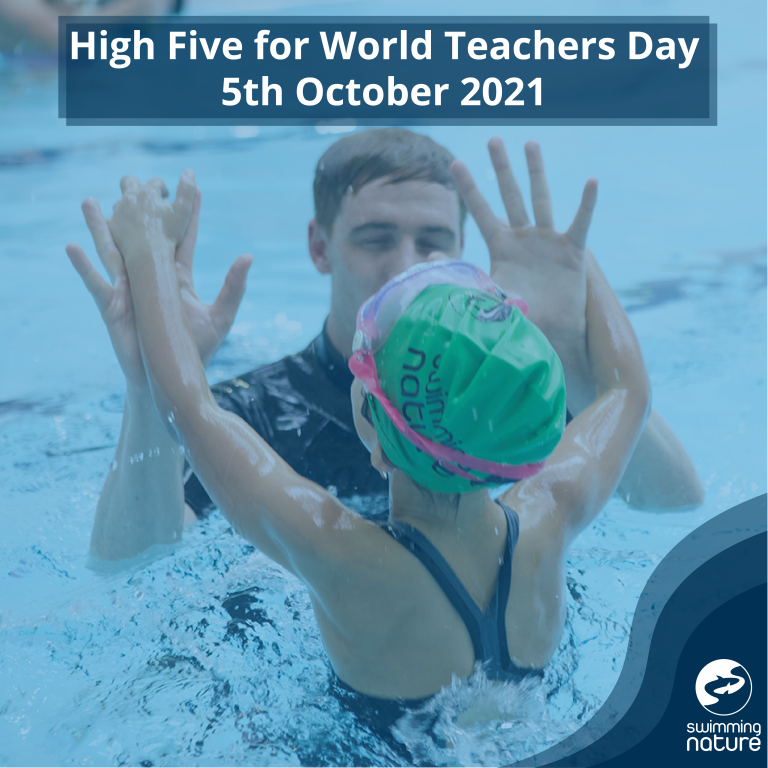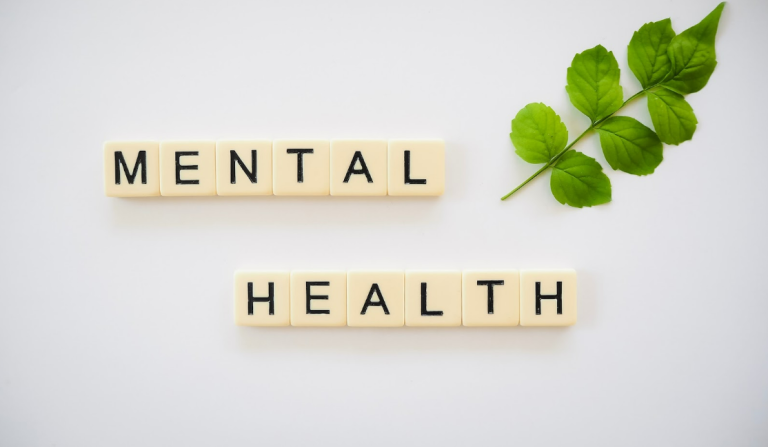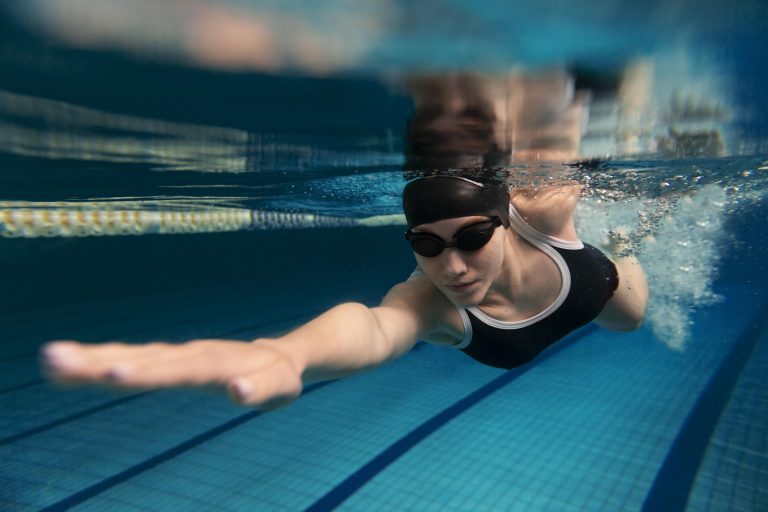We all remember those dire warnings from our youth – If you eat and then go swimming within two hours, you’ll quickly sink below the depths, never to be seen again, or terrible stomach cramps will overtake you, leaving you writhing on the floor once you get out.
As it turns out, both are little more than old wives’ tales that managed to niggle their way into the public consciousness. Eating and then going for a swim isn’t inherently dangerous, but that doesn’t mean there aren’t a few points to consider before you order that super-size Big Mac on your way to the pool.
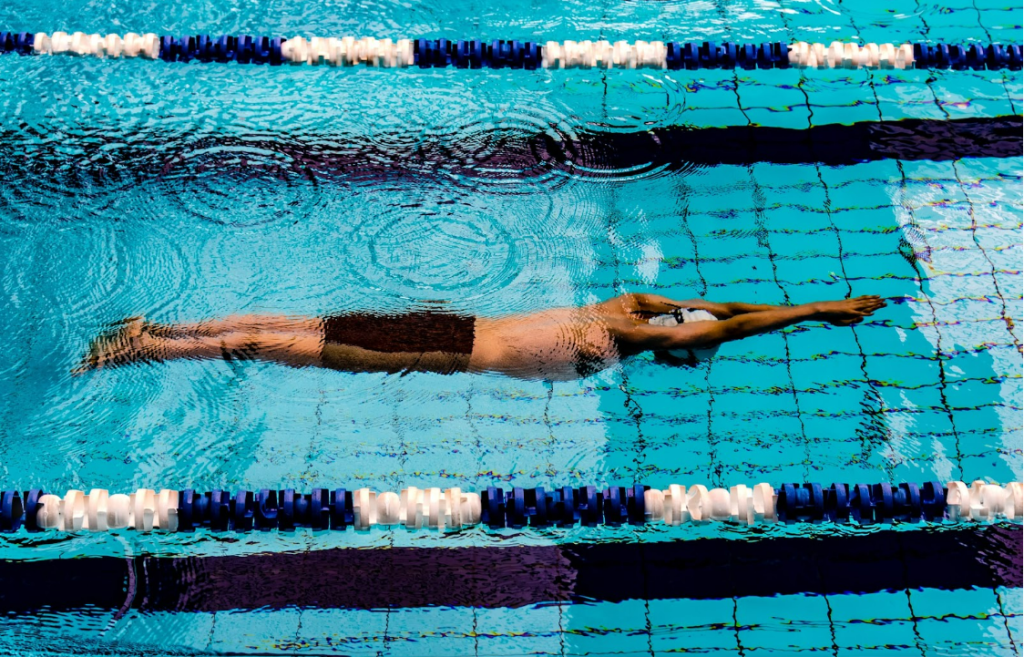
Swimming & Nutrition Facts and Figures
Before discussing what and what not to consume before, during, and after swimming, let’s look at some facts.
- Swimming for an hour can burn anywhere from 400 to 600 calories, depending on your weight and the intensity of your swim.
- Swimming is a low-impact activity, excellent for the body by toning muscles, building endurance and strength, and helping to lower blood pressure. Compared with other low-impact options, its calorie burn is significantly higher. A 160 lb person would only burn around 314 calories walking 3.5 miles per hour for 60 minutes. Yoga is only about 183 calories per hour, while an elliptical trainer might reach 365 calories in that time.
- The average swimmer burns up to 30% more calories in cold water than in warm water, as the body works harder to maintain its temperature.
- Michael Phelps, the most decorated Olympian of all time, consumed a whopping 12,000 calories daily during peak training, including pasta, pizza, and sandwiches.
What to Avoid
Plenty of options can provide exactly the right fueling you need before swimming, which we’re coming to shortly, but there are also several things you should avoid.
Fatty foods are grader for the body to process and can lead to indigestion and discomfort while swimming. Spicy food, excessive caffeine, and alcohol should also be avoided before entering the pool.
Before You Dive In
As we’ve seen, swimming burns a surprisingly high amount of calories, so if you’re planning on swimming for long, you must have enough fuel inside you. The time you intend to be in the pool will significantly affect how much you need to eat. If you’re only planning on doing a few laps, we’d suggest not worrying too much about food, but if you’re training for an Ironman, that’s quite a different story.
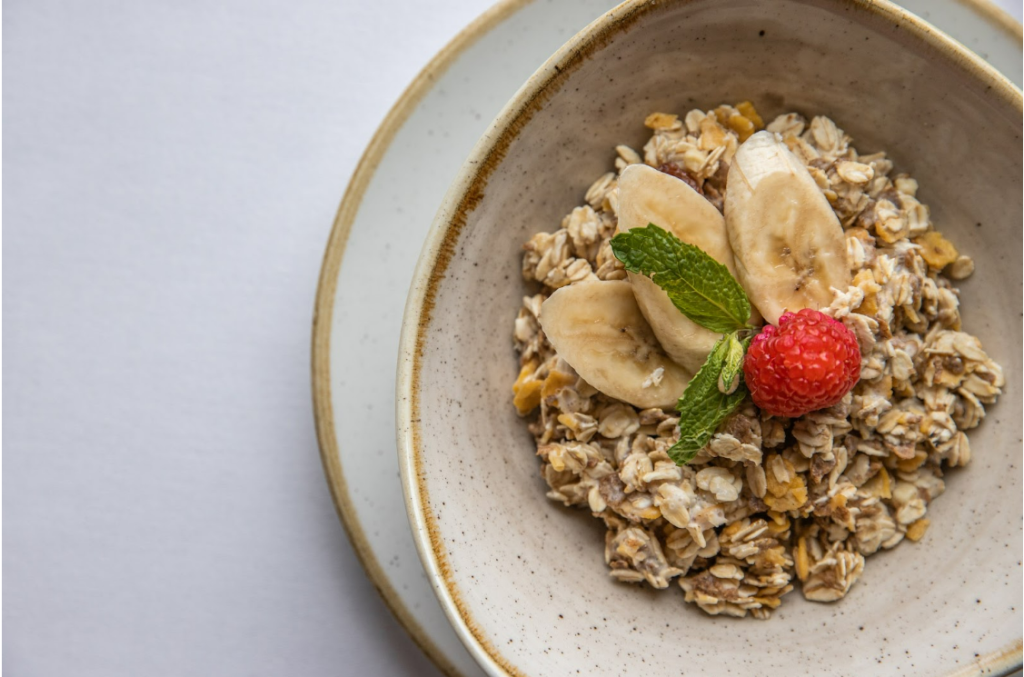
Carbohydrates
Carbohydrates are like rocket fuel for your body, especially before swimming. They provide a quick and easily accessible source of energy. Complex carbs like whole grains, oats, peas, beans, and sweet potatoes are best as they release energy slowly, ensuring a sustained energy source throughout your swim. A small serving of pasta or a bowl of oatmeal a couple of hours before your swim will do wonders.
Pre-Swim Snack
Bananas have long been the go-to pre-activity snack. They’re rich in potassium, which helps prevent muscle cramps and provides a quick energy source. Grab a banana 30 minutes before you start swimming for that extra boost.
Other great pre-swim snack options include rice crispy squares, a granola bar, or a couple of crackers. Whatever you choose, keep it light, and have it around half an hour before going in.
Stay Hydrated
Proper hydration is critical for any physical activity, and swimming is no exception. It’s easy to forget about our need for water while submerged, but dehydration can lead to fatigue and muscle cramps, which can spell the end of a swim session. Drink water throughout the day leading up to your swim session, and have a glass about 30 minutes before entering.
During Your Swim
With your body well-fueled thanks to your pre-swim meal, it’s unlikely that you’ll need any more food while you’re in the pool. If swimming for over an hour at a high intensity, consider having some grapes, dried fruit, or a low-fat yoghurt drink.
Hydration, Hydration, Hydration
Staying hydrated during your swim is crucial, especially if you’re doing a long-distance swim. If you start to feel a headache, this could be a sign of dehydration. Take short breaks at the wall or edge of the pool to sip on water or an electrolyte drink. Avoid sugary sports drinks as they can cause energy spikes and crashes.
You should aim to drink between 500ml and 1 litre of water for every hour that you’re in the pool – depending on the level of intensity – as a drop of just 2% in hydration has been shown to have a negative impact on swimming performance.
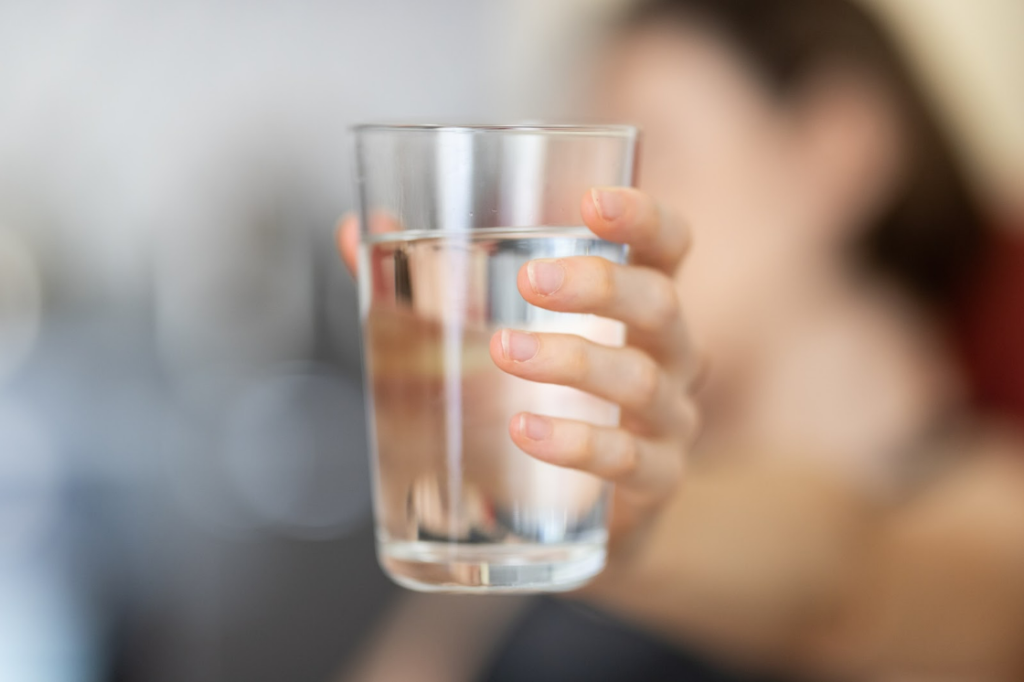
After Your Swim
Like any physical activity, once your swim is over, you’ll need to eat within at least two hours – 20 to 30 minutes is even better – to help your muscles recover and replace their glycogen stores. Not doing so can lead to low energy, dehydration, poor muscle recovery, low electrolyte levels and low mood.
Pack Your Protein
A protein-rich meal is the best way of helping to repair and build your muscles. Opt for lean protein sources like chicken, fish, tofu, or legumes. A chicken and quinoa salad or a salmon and vegetable stir-fry are excellent choices.
A protein shake is always a good option right after any physical activity. They provide what you need to begin the muscle recovery process and help with muscle gain without the need for digging into an actual meal – something that many struggle with immediately after working out.
Rehydrate and Replenish Electrolytes
Even if you’ve been diligently hydrating during your swim, you’ll almost certainly still be running on a deficit. When we are in the water, we tend not to notice our sweat, but it’s definitely still happening – meaning you’ve lost plenty of fluids and electrolytes through your pores. Rehydrate with water and consider sipping on a sports drink with electrolytes to help your body recover faster.
Don’t Forget the Carbs & Vitamins
While we usually focus on protein after a workout, it’s essential you don’t forget to include some carbohydrates, fruits, and vegetables in your post-swim meal. Carbs help replenish the glycogen stores in your muscles, promoting quicker recovery. Complex carbs such as brown rice, whole-grain bread, or sweet potato are the best form. Your body might be telling you that white bread, pizza, and sweets are precisely what you need, but trust us, they’re really not.
Fresh fruits and vegetables provide an excellent supply of vitamins, minerals and antioxidants, which help the body ticking over and working correctly.
Conclusion
To make the most of your swim sessions, paying attention to your nutrition is essential. Fuel up with carbohydrates before swimming, stay hydrated, and replenish your body with a balanced meal afterwards. Remember, what you eat can significantly impact your performance and recovery.

 LOG IN
LOG IN
 CONTACT US
CONTACT US

